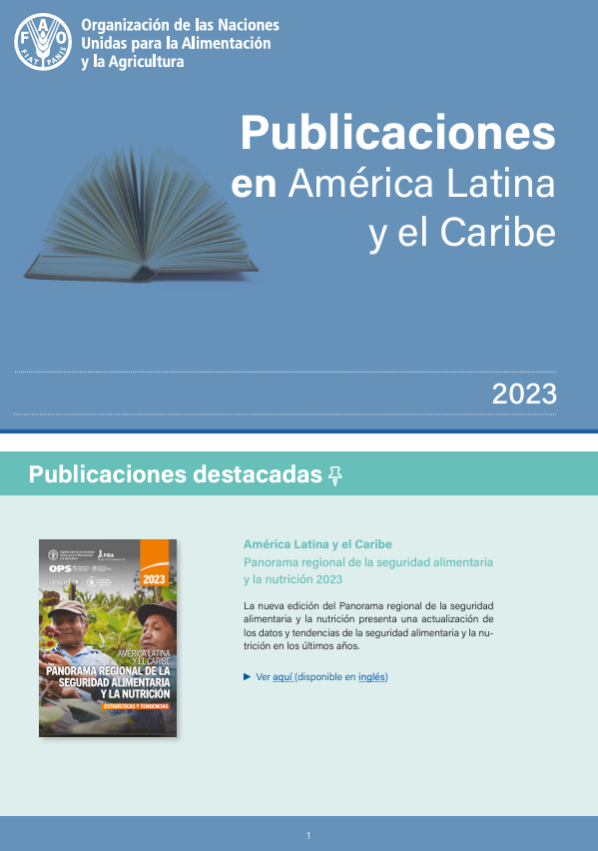Publications

Chile: Honey
09/12/2024
This document addresses the situation in Chile. The OCOP product is honey, a product of significant cultural, economic, and environmental importance. By focusing on honey, the OCOP initiative aims to promote sustainable production methods, improve market access, and increase the income of local beekeepers, particularly small-scale producers.

Mexico: Amaranth
09/12/2024
This document addresses the situation in Mexico. The OCOP product is amaranth. This report emphasizes the significance of amaranth as a priority crop in Mexico, rooted in the country’s pre-Hispanic heritage and recognized as a superfood by the United Nations. Grown by small-scale farmers in central and southern regions, amaranth thrives in rain-fed systems and showcases resilience to drought, salinity, and high temperatures.

The Plurinational State of Bolivia: Quinoa
09/12/2024
This document addresses the situation in the Plurinational State of Bolivia. The OCOP product is quinoa, a crop that holds exceptional cultural, nutritional, and environmental significance. The Plurinational State of Bolivia is recognized as one of the world's primary producers of quinoa, often referred to as the "golden grain of the Andes." Quinoa’s unique resilience to harsh climates and its high nutritional value make it a cornerstone of food security both locally and globally.

Guatemala: Coffee
09/12/2024
This document addresses the situation in Guatemala. The OCOP product is coffee. Despite its global significance, with Guatemala as the ninth-largest coffee exporter worldwide, the industry faces key challenges.

The Bolivarian Republic of Venezuela: Cocoa
09/12/2024
This document addresses the situation in The Bolivarian Republic of Venezuela. The OCOP product is cocoa, a crop with profound cultural, economic, and environmental significance. The Bolivarian Republic of Venezuela is globally renowned for its fine aromatic cocoa, considered one of the best in the world due to its unique flavor profiles and superior quality.

Peru: Native potatoes
09/12/2024
This document addresses the situation in Peru. The OCOP product is native potatoes, a cornerstone of Peruvian agriculture and culture. Peru is home to more than 3 000 varieties of potatoes, a testament to the country's rich agricultural biodiversity and ancestral farming knowledge. Native potatoes are not only vital for local food security but also represent a unique opportunity to promote sustainable agricultural practices and celebrate Peru’s cultural heritage.

Nicaragua: Low-carbon livestock
09/12/2024
This report highlights Nicaragua’s efforts to promote low-carbon livestock as part of the One Country One Priority Product (OCOP) initiative. Livestock production is a cornerstone of Nicaragua’s economy, involving 164 000 families, 80 percent of whom are small and medium-sized producers. The sector is a leading regional exporter of beef and dairy products, with 80 percent of farms adopting sustainable practices.

